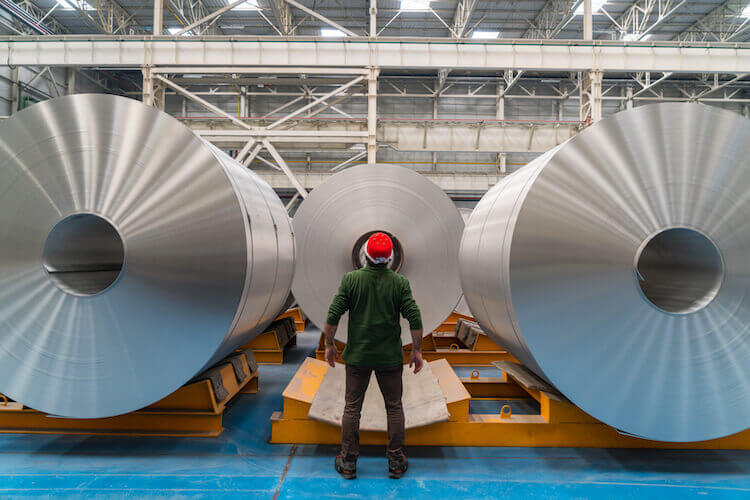What Applications Require Sheet Metal Fabrication?

From microwaves to tractors to cars to forks, sheet metal is a cornerstone of many different things we use everyday.
Sheet metal is metal that has been formed into a sheet that is thin and pliable, but maintains structural integrity and strength (unlike foil).
Sheet metal comes in 4 different forms: cold rolled steel, hot rolled steel, stainless steel and aluminum. Each of these different categories vary in thickness, hardness, strength and ideal application.
Read on to understand the 4 different types of sheet metal and their everyday applications.
Cold Rolled Steel
Cold rolled steel is made through a rolling process that’s conducted at room temperature. Just as the name implies, it’s pressed into sheet form in a cold state.
Using a cold process increases the strength of the sheet metal by as much as 20%. Cold rolled steel is notably inexpensive and easy to work with.
What its used for:
- Has a more finished appearance than hot rolled steel, and works best for anything that needs a polished, even appearance.
- Often used in home appliances, metal furniture, filing cabinets and school lockers.
- In construction, cold rolled steel is a common material for building steel sheds, industrial buildings and garages.
Hot Rolled Steel
On the opposite end of the spectrum, hot rolled steel is formed while it’s still hot. This metal is more difficult to work with than cold rolled steel, but is easier to manage in sheet form.
Like cold rolled steel, hot rolled steel can be produced inexpensively and quickly. But this steel has surface imperfections that make it a bad choice for anything that needs a smooth, attractive finish.
What it’s used for:
- Structural components like I beams, cross sections, rail tracks and sheet metal
- Commonly used for art sculptures (after stainless steel)
- Used for truck frames and auto seat frames
- Used widely in agriculture equipment thanks to its strength and flexibility
Stainless Steel
Stainless steel is forged with chromium and steel. Stainless steel is rust resistant and doesn’t corrode, which makes it ideal for more industrious applications.
Stainless steel is easily welded and has an attractive finish. Plus, it’s relatively low maintenance as it ages.
What it’s used for:
- Commonly used in construction thanks to its strength, flexibility and resistance to corrosion.
- Used in car exhaust systems, trim and grills and structural components.
- Used in surgical and dental instruments, MRI scanners, surgical implants, and pins and plates used to fix broken bones in place.
- Used in kitchen accessories, kitchen appliances, sinks, counters, cutlery and cookware.
- Used to make storage tanks, valves, pipes and other components.
Aluminum
Aluminum is one of the most common types of sheet metal. Like stainless steel, aluminum is resistance against rust and corrosion. Plus, it’s strong and lightweight, which makes it ideal for a variety of different applications.
What it’s used for:
- Used in transportation — because of its lighter weight, less force is required to move the vehicle
- Used to build homes — aluminum need very low maintenance and is thermally efficient, which keeps homes warm in winter and cool in summer (plus it has a smooth finish and can be curved or cut in any shape)
- Used in long distance power lines thanks to low density and corrosion-resistance
- Used in consumer goods like smartphones, tablets, laptops, and flat screen TVs
- Used in motors, appliances, power systems, television antennaes, satellite dishe and LED
Sheet Metal Thicknesses
Sheet metal can vary in thickness and types of metals. The most common thicknesses of sheet metal are less than ¼” thick.
When sheet metal is too thick to be used in a turret punch, typically around 3/16″ or thicker, it’s often called a plate.
Sheets of metal thinner than 3/16″ are still categorized by thickness, but these measurements are converted into numbers called “gauges.”
Below are the conversions of gauges/ thicknesses for common sheet metal types:

Overhead cranes are a powerful tool used by both sheet metal fabrication plants, and by the industries that require the use of sheet metal.
Whether you work in construction, manufacturing, fabrication, mining or another industry, an overhead crane can help ensure your project is carried out quickly and safely.
Discover 10 industries that use overhead cranes as a cornerstone of their everyday operations >








